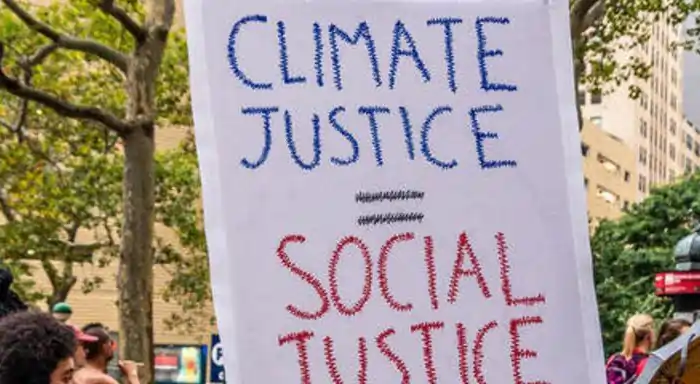Social Change brought by Social Movements
Ok Lets take an example imagine you and your friends are playing a game, but you realize that the rules of the game are not fair. You think that everyone should have an equal chance to win. So, you and your friends decide to start a movement to change the rules of the game.
You talk to other kids in your school and neighborhood, and they agree with you. Together, you all start protesting and speaking up about the unfair rules. You make posters, organize rallies, and even talk to the adults in charge of the game.
Because of your efforts, the adults start listening to you and realize that the rules need to be changed. They understand that it’s important for everyone to have a fair chance to win. So, they decide to change the rules of the game to make it more fair for everyone.
In this example, the social change is the new rules of the game that make it fair for everyone. The social movement is the group of kids who came together to bring about this change. Without the social movement, the rules of the game would have stayed unfair. But because of the movement, the change was made and everyone can now enjoy playing the game on equal terms.
Social Movements influence Public Policy

Social movements can have also a huge impact on public policy by influencing the decision-making and shaping the agenda of policymakers.
Raising Awareness: Social movements bring attention to specific social issues that may have been ignored by policymakers. By raising populace awareness through protests, media campaigns, and other forms of activism, social movements can render public support and put pressure on policymakers to fix those issues.
Shaping Public Opinion: Social movements have the power to shape public opinion by presenting alternative perspectives on social issues. Through their advocacy efforts, social movements can challenge existing beliefs and attitudes, educate the public, and change public opinion on certain policy matters. This can create a favorable environment for policy change.
Mobilizing Grassroots Support: Social movements often mobilize grassroots support by organizing rallies, marches, and other forms of collective action. By mobilizing large numbers of people who are passionate about a particular issue, social movements can show the strength of public support and create political pressure on policymakers to take action.
Lobbying and Advocacy: Social movements engage in lobbying and advocacy efforts to influence policymakers. They may meet with elected officials, submit policy proposals and come in other forms of direct engagement to persuade policymakers to adopt their policy.
Coalition Building: Social movements often form alliances with other organizations, interest groups, and stakeholders who share similar goals. By building broad-based coalitions, social movements can amplify their voices, pool resources, and increase their influence on public policy.
Legal Action: Social movements may resort to legal action, such as filing lawsuits or pursuing court challenges, to advance their policy objectives. By using the legal system, social movements can seek judicial remedies and force policymakers to address their concerns.
Electoral Influence: Social movements can also influence public policy through electoral means. They may endorse and campaign for candidates who support their policy agenda, mobilize voters, and contribute to the election of policymakers who are sympathetic to their cause.
It’s worth mentioning that the impact of movements, on policy can differ based on a range of factors. These factors include the atmosphere, the potency of the movement the extent of backing and how open policymakers are, to these movements.
Long-term Societal impact by Social Movements
The long-term impact of a social movement refers to the lasting effects it has on society even after the initial protests or demonstrations have ended.
Let me explain to you a research by researchers who are studying the long-term impact of a specific social movement – the Chinese student movement of 1989, which culminated in the Tiananmen Incident. This movement was a significant attempt to bring about democracy in an authoritarian regime.
The researchers found that even after almost 30 years, the attitudes of those who were present during the movement still reflected the values and ideas of democracy. This suggests that the experience of participating in a social movement can have a transformative effect on individuals and their attitudes towards democracy.
The findings of this study contribute to our understanding of the impact of social movements on society. It shows that even in constrained political environments, social movements can have a lasting impact on people’s attitudes and beliefs. This highlights the power of ideas and civil society in bringing about change.
However it is worth noting that the impact and reach of movements can vary. While some areas may experience effects, such, as in the realm of political rights other areas may see more modest changes. It is also important to consider that this study focuses on a movement within an authoritarian regime so its findings may not be universally applicable.
The research indicates that social movements have an influence, on shaping term societal attitudes and beliefs particularly regarding democracy. This underscores the significance of comprehending the impact of movements for an understanding of the dynamics involved in social and political transformations.
Was this helpful?
0 / 0